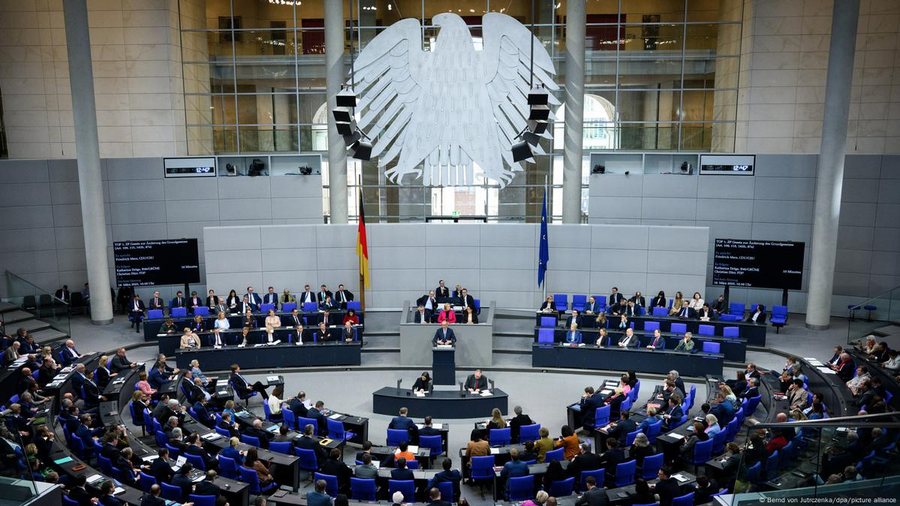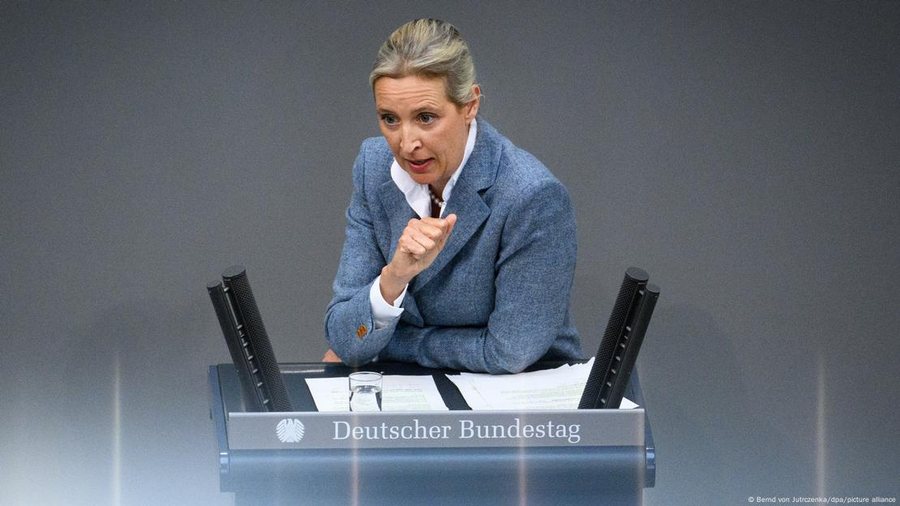
Germany wants to invest hundreds of billions of euros more in national defense and rebuilding its dilapidated infrastructure. The Bundestag will vote on this on March 18.
This has never happened before in the history of the German Bundestag: on Tuesday (March 18), parliament will vote on a bill that will allow unprecedented borrowing for the military, civil infrastructure and climate protection in the coming years. In addition, 16 federal states will be able to borrow within certain limits in the future. This was not previously allowed.
The bill comes from the CDU/CSU and SPD, who want to form a new federal government after the recent elections in Germany, as well as Friedrich Merz (CDU), who wants to become chancellor. But to achieve a majority in parliament, these three parties need the Greens, who will be in opposition in the future.

After the four parties reached an agreement in difficult negotiations, the Bundestag's budget committee decided on Sunday (March 16) to recommend that parliament approve the bill. This is planned in detail:
Removing the debt brakes
The Basic Law (German Constitution – ed.) stipulates that the state can only spend as much money as it takes in. While the "debt brake" applies strictly to the 16 federal states, the federal government is still allowed to borrow within a certain limit - up to 0.35 percent of gross domestic product (GDP), or annual economic output.
1. "Whatever is necessary" for military spending
The debt ceiling is practically lifted for the necessary allocations for the country's defense. The draft document to be voted on by the Bundestag states that funds for the Bundeswehr, but also "federal spending on civil defense and population protection, as well as on intelligence services, on the protection of information technology systems and on assistance to states attacked in violation of international law" can in future also be financed through loans.
This includes military aid to Ukraine, which is planned to reach four billion euros by 2025, to which another three billion euros will probably be added soon.
The new regulation applies to all costs exceeding one percent of gross domestic product (GDP). Based on economic output achieved in 2024, one percent of GDP corresponds to an amount of around 43 billion euros.
Anything above that amount will no longer be subject to borrowing limits in the future. CDU leader and future German Chancellor Friedrich Merz described the significance of this decree with the words: "Whatever you need!"
2. Loans for countries
The strict ban on state borrowing should be relaxed and brought into line with the federal level. All states together would then be allowed to borrow up to 0.35 percent of GDP. The distribution of these amounts would be regulated by a federal law that has not yet been drafted.
One problem is that the states will have to implement the new rules. But there is disagreement in the state parliaments about this. One way to make the changes possible would be to amend the Constitution, which would also repeal the state acts. But this would be a serious interference with federalism in Germany.
Special Infrastructure Fund
Germany has major infrastructure problems. The condition of roads, bridges and railways has deteriorated for decades without attention being paid to their maintenance. There is also a need for modernization in the energy and water supply, telecommunications, schools, universities and hospitals. The country has also lagged behind in terms of digitalization. The transformation and expansion of climate-neutral energy infrastructure is far from over.
1. Amendment to the Basic Law on Investments
Article 143h of the Basic Law was amended to stipulate that 500 billion euros in debt can be created for infrastructure investments over the next twelve years. The amount will be divided: the states will use 100 billion euros for their infrastructure, while the federal government has 300 billion euros at its disposal. The remaining 100 billion euros are intended for climate protection. The draft law speaks of "additional investments to achieve climate neutrality by 2045".
2. The principle of addition
This is additional money that must be allocated for already planned investments. To ensure this, it is assumed that in the future at least ten percent of the total budget in the regular budget at the federal level will have to be allocated for investments. Based on the 2024 budget, this would be around 47 billion euros. Only needs exceeding this amount can come from a special fund financed by loans.
Borrowing faces criticism
The Alternative for Germany (AfD), which is partly right-wing extremist, and the Left Party are against the debt package for different reasons. The two parties together have more than a third of the seats in the new Bundestag. Therefore, these changes are being demanded now, in the old Bundestag.
1. Voting in the "old" Bundestag.
Constitutional changes are only possible if at least two-thirds of the members of the Bundestag agree. The AfD and the Left could block this package in the new Bundestag. Therefore, the CDU/CSU and the SPD want the "old" Bundestag, in which they and the Greens still hold more than two-thirds of the seats, to vote on it. The current Bundestag has a term of office until March 25, when the new composition of the Bundestag will be constituted. The AfD and the Left tried to prevent the vote in the old Bundestag, but their lawsuits to the Federal Constitutional Court were unsuccessful.

2. Financial consequences of borrowing
Economists warn of dire consequences for financial markets if Germany takes on a huge new debt worth nearly a trillion. Lars Feld, a professor at the Walter Eucken Institute in Freiburg, assumes that German national debt will rise from the current level of around 62 percent to 90 percent of annual economic output in ten years.
This would result in additional interest costs of between 250 billion and 400 billion euros, depending on the movement of interest rates on government bonds, Feld told a session of the Budget Committee in the Bundestag. International bond markets have already become nervous.
Veronika Grimm, a professor at the Technical University of Nuremberg, sees "a challenge for stability in Europe." She said this at the Budget Committee meeting. If interest rates on German government bonds rise, this will cause interest rates for already highly indebted countries such as Italy and Spain to rise to levels that these countries can barely cover. Grimm warned that this would again increase "vulnerability in the eurozone." /DW/ (A2 Televizion)














